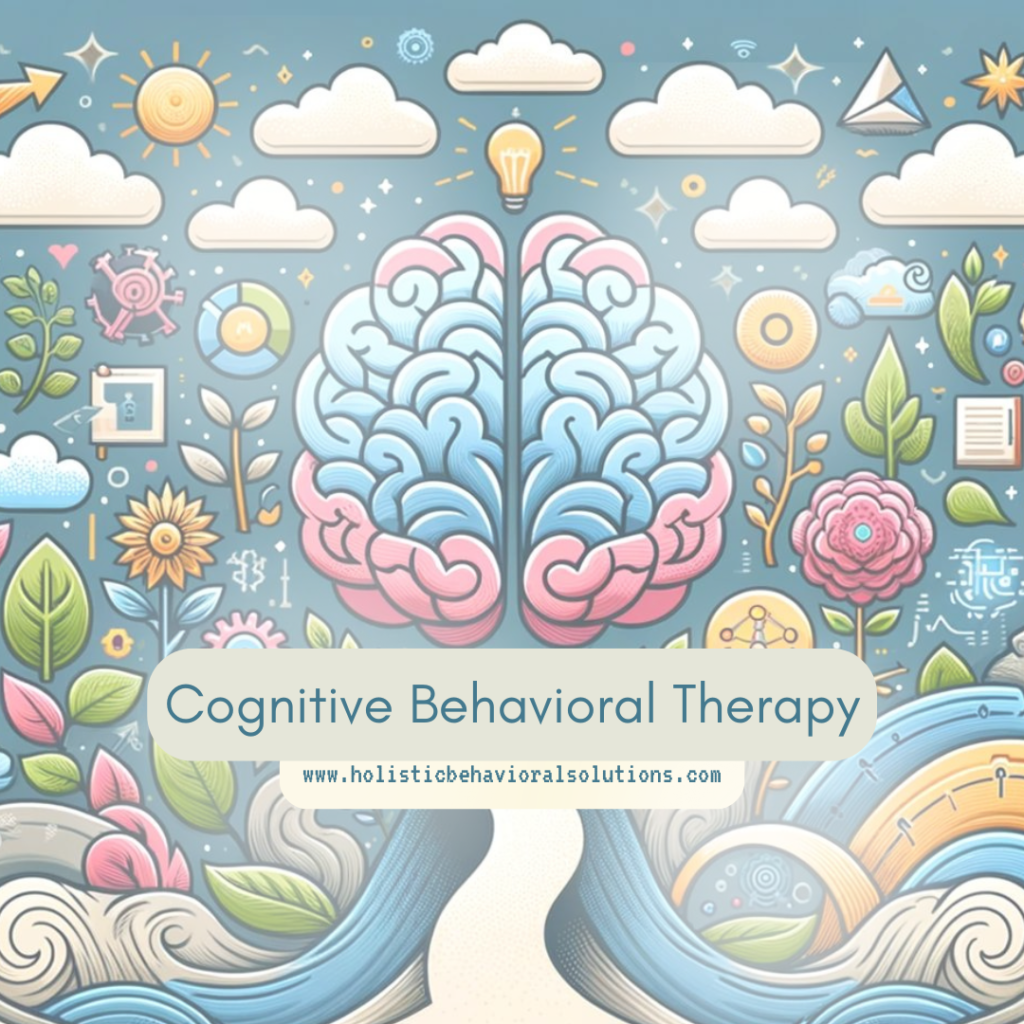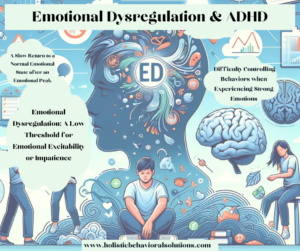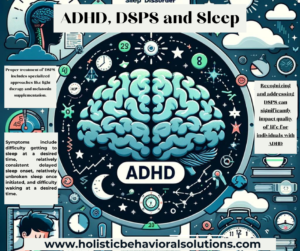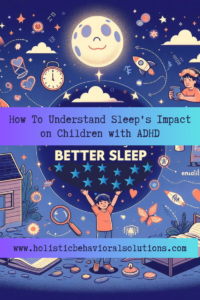
Understanding Cognitive Behavioral Therapy (CBT)
Cognitive Behavioral Therapy (CBT) is a psychotherapeutic treatment that helps individuals learn how to identify and modify destructive or distressing thought patterns that negatively impact their behavior and emotions. It is the most widely practiced therapeutic modality. Research studies indicate that CBT can lead to significant improvements in functioning, quality of life, and symptom reduction. It is particularly effective for anxiety disorders and has been shown to be as effective as, or even more effective than, other forms of therapy or medication. Keep in mind that its effectiveness varies from person to person.
What is Cognitive Behavioral Therapy (CBT)?
- Cognitive Behavioral Therapy is based on the idea that our thoughts, feelings, and behaviors are interconnected, and by changing our thoughts and behaviors, we can improve our emotional well-being. Here’s how CBT works:
- Identifying Negative Patterns: In CBT, individuals work with a therapist to identify negative thought patterns and behaviors that contribute to their distress. These patterns may include irrational beliefs, negative self-talk, or avoidance behaviors.
- Challenging Thoughts: Once identified, individuals learn to challenge and reframe these negative thoughts. They explore evidence for and against their beliefs, considering alternative perspectives. This process helps replace distorted thinking with more realistic and balanced thoughts. You may hear your therapist say “we are challenging our irrational beliefs.” That is part of the language. Your beliefs are valuable but we need to find the parts that do not serve us.
- Behavioral Interventions: CBT also involves behavioral interventions. Individuals learn coping strategies, problem-solving skills, and relaxation techniques. They gradually face feared situations (exposure therapy) to reduce avoidance behaviors.
- Homework and Practice: Between sessions, individuals practice what they’ve learned through homework assignments. This reinforces new skills and helps generalize them to real-life situations. You may hear your therapist say “Let’s journal about this.”
- Targeting Specific Issues: CBT is effective for various mental health conditions, including anxiety disorders, depression, phobias, and obsessive-compulsive disorder (OCD). It is often time-limited, with a specific number of sessions. CBT can also be used in conjunction with other therapies and may be ongoing as you identify additional issues that you would like to change.
- Empowerment and Self-Management: CBT empowers individuals to take an active role in their treatment. It teaches practical tools they can use independently to manage symptoms and prevent relapse.
- Overall, CBT aims to break the cycle of negative thoughts, emotions, and behaviors, promoting healthier ways of thinking and responding. It is evidence-based and widely used in clinical practice.
Benefits of Cognitive Behavioral Therapy
Cognitive Behavioral Therapy is one of the most extensively researched forms of therapy, proven effective for a wide range of mental health conditions. Its structured nature and practical approach provide clients with valuable coping skills that last a lifetime, promoting resilience and self-efficacy. In CBT, therapists and clients work together to identify and challenge negative thought patterns and behaviors. Techniques such as cognitive restructuring help clients view situations more clearly and respond to them more effectively. Homework assignments are often used to reinforce learning and practice skills in real-world situations. These techniques are associated with the best outcomes in the therapeutic research literature.
Issues Addressed in CBT
- Anxiety Disorders: Cognitive Behavioral Therapy has been extensively studied and proven effective in treating anxiety disorders. It helps individuals manage anxious thoughts, reduce avoidance behaviors, and improve overall well-being.
- Depression: CBT is a recommended treatment for depression. It focuses on changing negative thought patterns and behaviors, leading to symptom reduction and improved mood.
- Post-Traumatic Stress Disorder (PTSD): CBT helps individuals process traumatic experiences, challenge distorted beliefs, and alleviate PTSD symptoms.
- Eating Disorders: CBT addresses dysfunctional eating behaviors, body image concerns, and underlying psychological factors in disorders like bulimia nervosa and binge eating disorder.
- Substance Use Disorder: CBT assists individuals in identifying triggers, managing cravings, and developing coping strategies to overcome substance abuse. CBT is typically used with the Motivational Interviewing(MI) Technique in this area.
- Obsessive-Compulsive Disorder (OCD): CBT targets obsessive thoughts and compulsive behaviors, promoting symptom relief and improved functioning.
- Insomnia: CBT for insomnia focuses on sleep hygiene, relaxation techniques, and cognitive restructuring to enhance sleep quality. Your therapist may partner with another practitioner to determine if your sleep disturbance has medical or emotional roots.
- Chronic Fatigue Syndrome and Fibromyalgia: CBT helps manage symptoms, improve daily functioning, and enhance quality of life in these conditions. Often, your therapist will use reframing as a means to help you to cope and find new solutions to the issues that you are currently facing.
- Behavioral Problems: CBT has shown efficacy in addressing behavioral issues such as antisocial behaviors, drug abuse, and gambling. You will specifically work on increasing your distress tolerance, improve coping skills and practice appropriate self-talk.
- Physical Conditions: CBT complements medical treatments for conditions like irritable bowel syndrome, breast cancer, and chronic obstructive pulmonary disease. In summary, CBT offers consistent benefits across a wide range of mental health and physical conditions. Its evidence-based approach empowers individuals to develop effective coping strategies and improve their overall well-being.
What Other Issues Can Cognitive Behavioral Therapy Address?
CBT is effective in treating a variety of psychological problems, from mood disorders like depression and anxiety to behavioral issues such as substance abuse and eating disorders. It’s also beneficial for managing everyday stress and improving communication and interpersonal relationships. Cognitive Behavioral Therapy (CBT) offers a powerful and adaptable framework for addressing a wide array of life stressors, including relationship issues, grief, and work-related stress. By applying CBT principles, individuals can develop more resilient coping mechanisms and healthier perspectives, leading to meaningful improvements in their daily lives and relationships.
- Relationship Issues: Cognitive Behavioral Therapy helps individuals navigate the complex dynamics of personal relationships by encouraging them to identify and challenge unhelpful thought patterns and beliefs about themselves and others. Through techniques such as cognitive restructuring, individuals learn to replace negative, distorted thoughts with more balanced and constructive ones, improving communication and interpersonal interactions. CBT also emphasizes the development of problem-solving skills and assertiveness training, enabling individuals to express their needs and desires more effectively, thereby enhancing relationship satisfaction and reducing conflict.
- Grief: Grief can lead to a range of intense emotions and thoughts that can be overwhelming. CBT approaches grief by acknowledging and validating these feelings while also helping individuals to manage the distressing thoughts that can intensify the grieving process. Through gradual exposure to these thoughts and the use of cognitive restructuring, individuals learn to process their loss in a healthy way, reducing feelings of despair and helplessness. CBT also focuses on building acceptance and helping individuals adapt to life changes following their loss, fostering resilience and facilitating the journey towards healing.
- Work-Related Stress: The pressures of the workplace can often lead to significant stress, manifesting as anxiety, depression, or burnout. CBT tackles work-related stress by helping individuals to identify specific stressors and their associated thoughts and behaviors. By challenging irrational beliefs about work (e.g., perfectionism, fear of failure) and developing more adaptive coping strategies (e.g., time management, prioritization), individuals can reduce their stress levels and improve their work-life balance. CBT also teaches relaxation techniques and assertiveness skills, empowering individuals to set healthy boundaries and communicate effectively in the workplace.
- In all these contexts, Cognitive Behavioral Therapy’s structured and goal-oriented approach provides a clear framework for understanding and addressing the issues at hand. By focusing on the present and developing practical skills for change, CBT offers a robust pathway to improved mental health and well-being in the face of life’s many stressors.
What to Expect in a Cognitive Behavioral Therapy Session
CBT sessions typically last about 50 minutes and occur weekly. Some clients may want to work 2-3 times per week if they are trying to address issues more intensively. Therapists and clients collaborate closely, setting and reviewing goals together. The therapist usually has their process record and you will bring your journal. Both client and therapist work together on a treatment plan. Sessions are collaborative in nature and there is usually an reciprocal exchange of energy. Active participation and partnership is required in CBT. Therapists take a goal oriented approach and goals are reviewed regularly. Find more information in our FAQ section.
Cognitive Behavioral Therapy and The Holistic Store
While we are thinking that through, boost your connection from the inside out with our wellness supplements and supplies. Check out our store for products that help you feel your best, making it easier to open up and connect on a deeper level.


